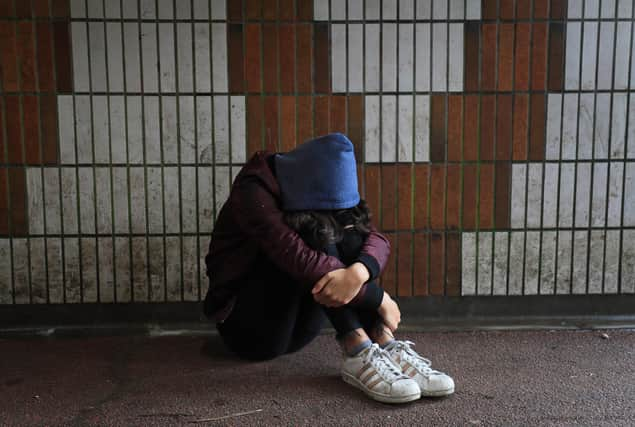Scotland's juryless rape trial pilot: Improving the diversity of juries and changing courtroom conduct is a better way to tackle low conviction rates – Amanjit Uppal


Earlier this year, the Scottish Government launched the Victims, Witnesses, and Justice Reform (Scotland) Bill which grants ministers the power to enable a pilot of juryless rape trials to be conducted for a limited period in an attempt to increase conviction rates. The Justice Secretary, Angela Constance, has stated that this trial is “about how we improve, how we best serve justice, of course, in a manner that is fair and equitable to everybody involved”. Despite this encouraging sentiment, concern is high amongst lawyers as to whether true ‘justice’ will actually be served by this development.
Article 6 of the European Convention on Human Rights states that each individual is entitled to a hearing before an independent and impartial tribunal. The Scottish Government’s policy memorandum states that the legislation requires ministers to review the pilot and produce a report on the effectiveness of the changes.
Advertisement
Hide AdAdvertisement
Hide AdHow independent can a tribunal be if it is being reported on and expected to perform at a certain rate? How will this expectation subconsciously impact a judge or sheriff’s decision? These are the concerns of Scottish lawyers who are reluctantly digesting this legal development. Trials should be just as fair for the accused as they are for the complainer, and this fairness should not be slanted in any which way in the name of experimentation.
With this in mind, to get both lawyers and survivors on board, there must be a shift. The impact this proposal may have for survivors of rape has not been forgotten. Ultimately, the aim is to increase conviction rates because of how problematically low they are. Rape survivors and rape crisis charities worked with the Scottish Government on this proposed bill in an attempt to make courtrooms fairer overall.
The pilot is an attempt to rid the court of preconceptions that jurors may have about rape, as this can impact the final verdict and result in low conviction rates, which have been seen for decades. In a recent consultation, the Law Commission stated that “myths and misconceptions about rape and sexual assault still contaminate aspects of the trial process”. Additionally, by removing the jury, the trial can remain focused on the facts and evidence as opposed to attempting to manipulate and convince jurors. The thinking behind the proposal is understandable. The problem was identified, and this pilot is an attempt to solve it and assess the impact.
However, this drastic move – doing away with the jury altogether – has raised the prospect of a potential boycott across the legal profession. Some lawyers are uncomfortable with the notion that any preconceptions about rape will now be solely held by one judge or sheriff in the courtroom who will be making the final call. This may be a particular issue, given one individual holding such power may also hold problematic views, which there have been examples of in Scotland.
This, on top of the judge or sheriff’s subconscious awareness of the expectation to raise the conviction rate, makes for a great deal of reluctance to accept the pilot. There’s a middle ground in there, I’m sure. The unrest amongst lawyers is caused by a fear of jeopardising the right to a fair trial because of the lack of a jury, and rape victims and charities have protested the drastically low conviction rates in court for years.
It is important for juries to be diverse and include a variety of individuals of different ethnicities, genders, and socio-economic backgrounds. Having a diverse jury allows for breadths of experiences and perspectives to come together to make a collective decision, whilst minimising the effects of preconceptions and biases. And this is where, I believe, the emphasis should be.
Since the proposal, we have heard Police Scotland’s outgoing Chief Constable Iain Livingstone state that the force is institutionally racist, sexist, misogynistic and discriminatory. This undoubtedly has had an impact on rape trials across the country and it’s imperative for the justice system to respond appropriately and genuinely. As a result, it is more necessary than ever to ensure each strand of the justice system is diverse and inclusive to minimise the impact of racism, sexism, misogyny and discrimination in our police stations, court rooms and everywhere in between.
In the context of this pilot scheme, that means having a diverse and inclusive jury, as opposed to having no jury at all. Jurors are able to make decisions without pressure or undue influence in the courtroom, and that ability should be utilised. The Bill proposed by the Scottish Government can and should focus beyond simply the jury and instead on the conduct and processes in the courtroom and beyond, making sure lawyers and those working in the justice system are trained in issues around misogyny, victim-blaming, and the consequences of sexist attitudes as well as the need for preventing re-traumatisation or harm during the cross-examination of potential victims.
Advertisement
Hide AdAdvertisement
Hide AdThere is not one person in our court whose right to a fair trial is more important than another’s, and, just as equally, no individual should be acquitted for reasons related to misogyny and prejudice. Instead of removing the jury altogether, there should be consideration given to the ways in which we can avoid having biased juries which may lead to low conviction rates, and that starts with diverse perspectives and understandings, and reflecting on courtroom conduct.
Amanjit Uppal is a future trainee solicitor, commencing in September, a Young Women Scotland trustee and a committee member of the Scottish Young Lawyers Association